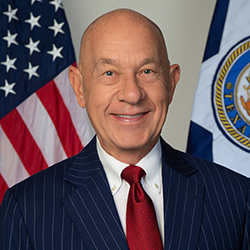Mayor Whitmire says he’s on the lookout for waste in the budget. May I suggest he look here?
Houston has subsidized the private trash collection of some affluent neighborhoods for almost 40 years, a policy that could complicate the city’s consideration of a monthly garbage fee to help head off a looming budget deficit.
Experts warn that implementing a garbage fee without ending the $3.3 million annual sponsorship to homeowner associations and civic clubs, representing some 47,000 households, could result in an additional burden on lower-income communities.
The city has given participating associations $6 per household each month for their private garbage collection since the 1980s, resulting in neighborhoods with higher average median incomes receiving more frequent services, in part, on the taxpayers’ dime.
The subsidy presents the city with a conundrum amid the Whitmire administration’s efforts to eliminate a budget deficit that is expected to top $200 million in fiscal 2025.
Keeping the subsidy while imposing a garbage fee on the 437,000 households whose trash is collected by the city could provide an incentive for more neighborhoods to switch to private services, which would leave lower-income residents paying for more infrequent service.
Do away with the subsidy and some of those HOAs and civic clubs could decide to change to city collection, raising the question of whether Houston has the capacity to add new neighborhoods to existing routes.
Mayor Sylvester Turner unsuccessfully tried to eliminate the subsidy eight years ago and faced criticism from affected residents. The idea has not been publicly raised since.
[…]
The city spends more than $3.3 million a year to subsidize private garbage collection for residents who live within participating civic or homeowners associations – accounting for 10 percent of the households needing garbage collection services.
District G residents represent almost 45 percent of all sponsored households with more than 21,000 participating residents, according to data from the Solid Waste Management Department. District E has the second highest number of participants, 19,000 people.
Together, the city subsidies total more than $2.9 million annually for the two council districts, which have the second and third highest median incomes in the city.
Private trash collection comes with varying benefits depending on the company, but can include two pickups per week, no limit on the number of trash cans and back door collection service. Taking away the subsidy could have wide-reaching effects for some HOAs, an administrator for Lakeside Island told the Landing.
Matt Garvis has worked for Lakeside Island, a neighborhood association in West Houston, for nine years and lives in the area’s larger Lakeside Improvement Association. Prices for garbage collection and constable service have increased in recent years, prompting a recent internal vote to increase the annual fees, he said.
Without the garbage subsidy, the HOA would have an approximate $40,000 hole in its budget, he said.
The subsidy has been at $6 since its inception and reasonably could be raised to compete with inflation, District G Councilmember Mary Nan Huffman told the Landing. Huffman lives in an HOA-represented neighborhood that receives the monthly subsidy, and questioned the viability of a citywide fee.
“What would happen if you don’t pay your garbage fee?” she asked. “Are they going to stop picking up your trash?”
The subsidies save the city money, Huffman said, because it would cost more per household to pick up the trash itself. Houston’s 311 service center data shows that missed trash pickup was one of the most frequent problems reported by residents.
“Even if you know, say, all the neighborhoods in District G decided that they wanted to go back to city trash, the city doesn’t have the capacity to take on these neighborhoods,” Huffman said.
Garvis did not think neighbors would be as upset about the cancellation of the subsidy if they had the option to keep private services without paying the city fee. He said some residents likely would want to switch providers if the city fee was cheaper, but he echoed the concern that the city does not have the capacity.
“I don’t know how many neighborhoods would call their bluff,” he said.
Yeah, I don’t believe that a bunch of wealthy neighborhoods are going to give up their fancy specialized trash collection service in favor of the city’s trash pickup if they suddenly stop getting a $6 monthly check from the city. (*) I understand why they wouldn’t like losing out on that subsidy – it doesn’t say how it came to be a thing in the first place; my best guess is it’s one of those “it’s good to be rich” situations – but my response to that is “too bad”. This to me is where a Mayor Whitmire can really make a difference. I look forward to seeing what he does.
(*) Seriously, how does this work? Do they get a $6 monthly reduction on their water bill or property taxes? Is there a direct payment to each household? Or is there an annual lump sum given to the homeowners’ associations?


Trash pickup is included in property taxes. These HOAs are not using city trash pickup, some by choice some because the City will not pick up trash from gated communities. When we lived in a Midtown townhouse, that was the case and the design of the full city block of homes made putting bins out impractical. It is entirely reasonable to rebate the $6 per month since no service is provided. The Solud Waste budget is about $19 per month per house, so this is a bargain for the city, especially where the City refuses to provide service.
It is cheaper to pay $6 and have the HOAs do private pickup than to pick up the garbage.
Ross does bring up an interesting point: assuming that the $19 is correct, why would the city charge more than $19 a month?
This is the school voucher rationalization of paying citizens tax money to not use a service, applied to garbage collection.